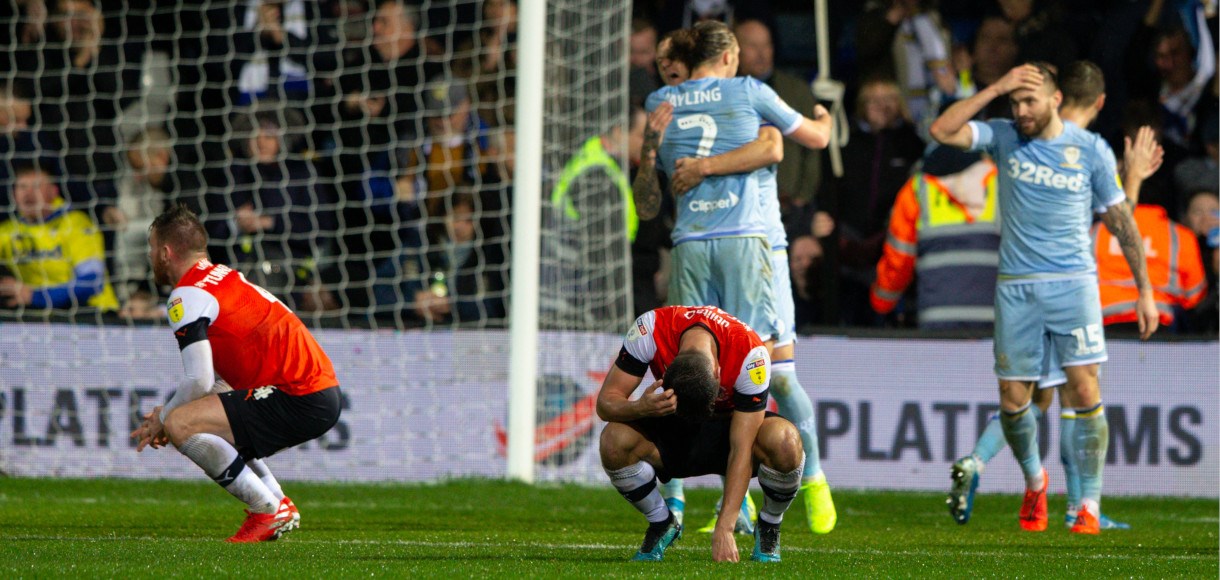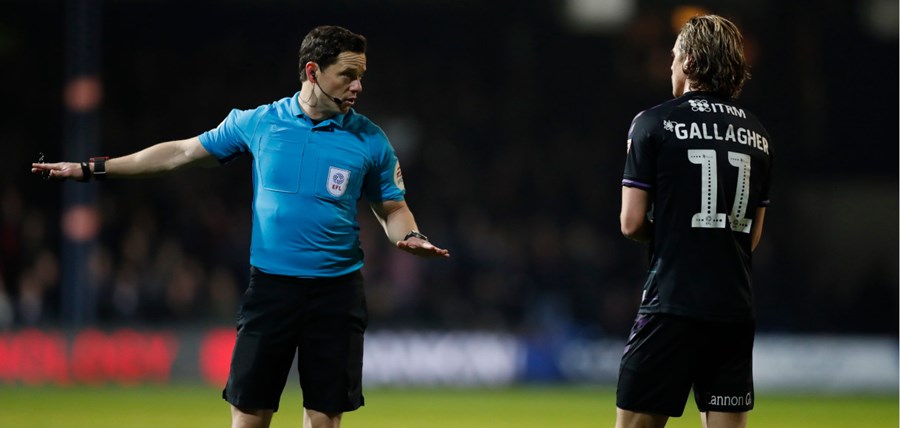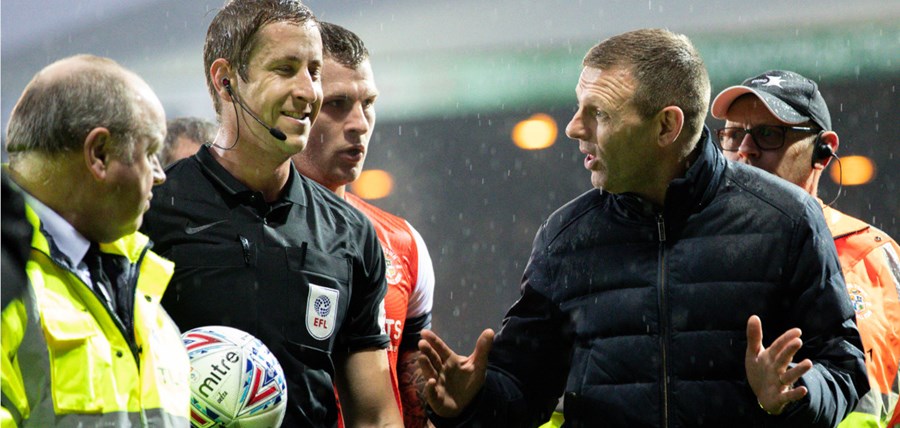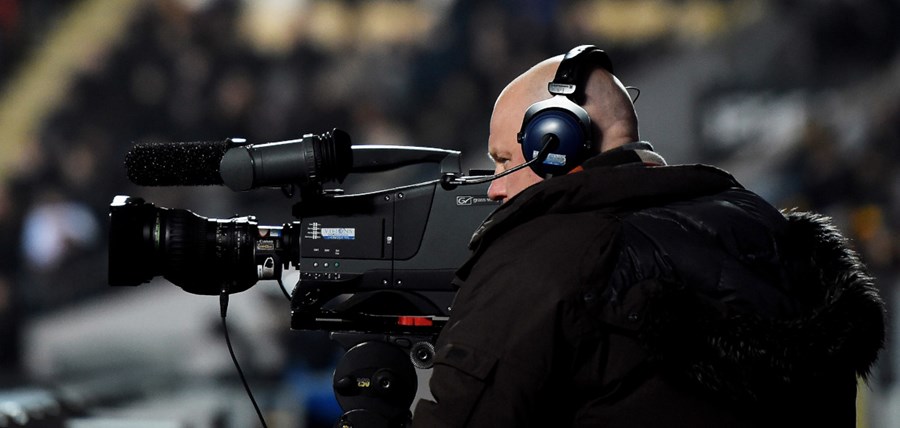4 reasons promoted clubs struggle in the Championship

Following Luton's 7-0 pasting at Brentford, all three sides that won promotion last term are 17th or below. We look at why they have struggled to establish themselves.
Keeping your squad together is tricky
As the sides that went up from League One last season will testify, it can be difficult to keep hold of your best performers after promotion.
Luton lost full-backs James Justin and Jack Stacey – who made a cumulative total of 102 appearances on the way to the title –to Leicester and Bournemouth respectively.
Barnsley, meanwhile, had the spine of their team picked apart. First-choice goalkeeper Adam Davies, centre-back pairing Ethan Pinnock and Liam Lindsay and last season’s top scorer Kieffer Moore, who netted 19 goals, all joined other sides in the Championship.
Of those six, only Lindsay and Stacey weren’t named in the PFA League One Team of the Year, though the latter did make it into the EFL’s equivalent XI.
It’s not the first time this has happened to the Tykes, either, with a similar exodus after they were promoted to the Championship in 2016/17.
Charlton were also picked apart by clubs circling from above.
The departures of Anfernee Dijksteel, Patrick Bauer and Joe Aribo meant they lost a total of 137 appearances from the previous campaign.
Strength in depth

Losing key players makes it even harder to compete with the well-stocked squads in the Championship.
Luton have the biggest squad of the three promoted sides with 27, and three of those (Luke Bolton, James Bree and Izzy Brown) are on loan.
Barnsley have a total of 26 players, while Charlton boast the fewest with 25 – five of whom are borrowed.
To put that into perspective, the other 21 teams in the Championship have an average of 31 players each to choose from. Only Millwall, QPR and Fulham have smaller rosters than those who came up last season.
Charlton were only able to name five substitutes in their 3-1 defeat against Sheffield Wednesday last weekend – the fourth time this season that they have been unable to fill their bench.
So it’s no surprise that, after a decent start, they have suddenly dropped off. The Addicks have won just twice in 13 games since mid-September, slipping to 17th in the table.
Luton and Barnsley have fared even worse, occupying fourth-bottom and bottom spot respectively.
With more injuries and suspensions guaranteed throughout the rest of the season, it’s not going to get any easier.
Lack of pragmatism

Luton, Barnsley and, to a lesser extent, Charlton were dominant last season because of their ability to dominate matches with attacking football.
The Hatters ended the 2018/19 season as the third-highest scoring team in the top four divisions with 90 goals, while Barnsley weren’t far behind on 80.
Barnsley also had the best defence in the division, conceding just 39 goals, while their No. 1, Adam Davies, tied with Luton goalkeeper James Shea for most clean sheets (19).
It is admirable that they haven’t tried to limit their style since moving up a division.
Barnsley rank 11th for possession in the Championship, with all the promoted sides averaging at least 48 per cent of the ball this season.
All three are comfortably in mid-table when it comes to attempted passes per game, while the Tykes average 10.2 key passes per match – the seventh-most in the division.
But, without better players, that approach simply doesn’t work.
Luton and Barnsley have the two worst defences in the Championship, conceding a combined total of 78 goals in their first 19 matches.
Better opposition defences have meant the goals have dried up at the other end, too, with both clubs in the bottom half for goals scored.
A more pragmatic approach, you expect, would not go amiss.
Money talks

This is the big one.
There are currently 12 teams in the Championship that have benefitted from Premier League parachute payments within the last five seasons.
Of those 12, six are still receiving them, with £34.9m dished out this season alone.
In comparison, Championship clubs who are not eligible for parachute payments are given £4.65m each in solidary payments from the Premier League.
Even on top of a payment £2.1m per year – given to all 24 Championship clubs, regardless of parachute payments – through the EFL’s television deal with Sky, it’s easy to see how wealth can distort the division.
Before the start of this season, Luton, Barnsley and Charlton had been given a solidarity payment of just £700k on account of being in League One.
With clubs operating in different financial stratospheres within the same division, it’s hardly surprising that those at the bottom end find it hard to compete.





































